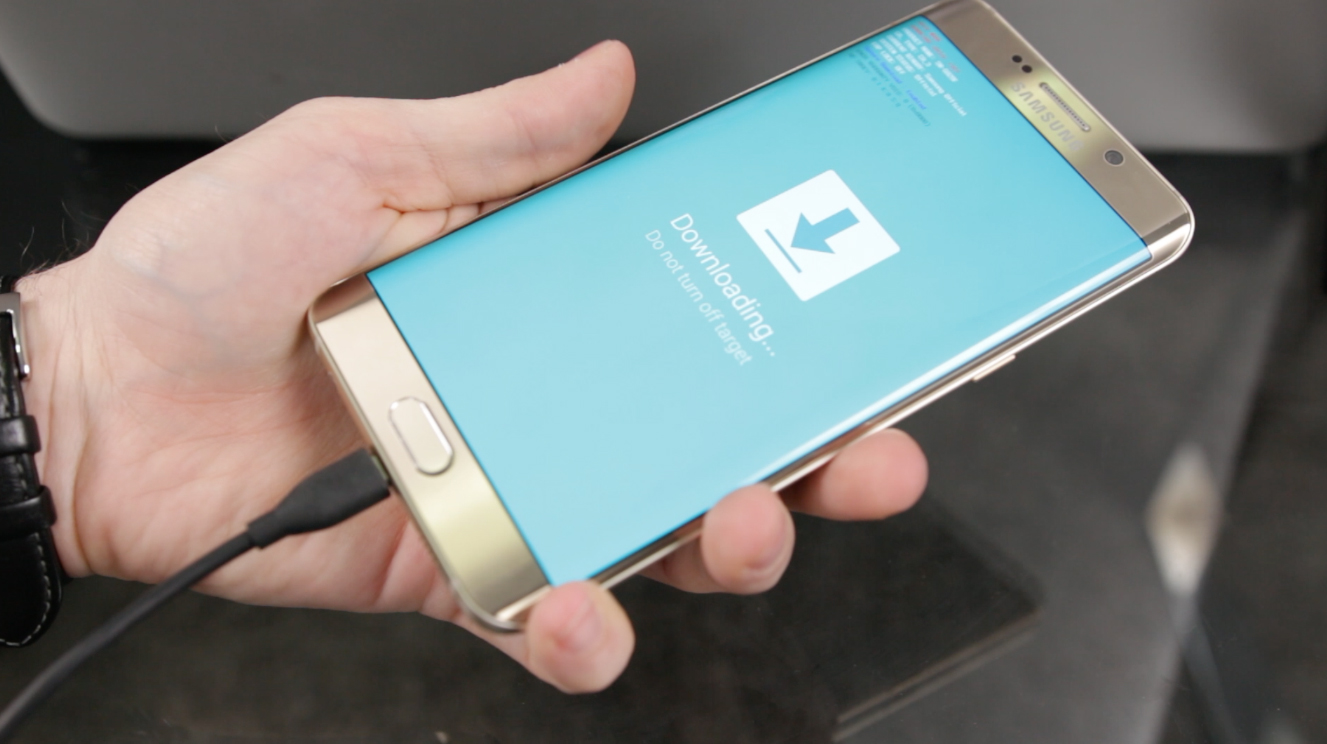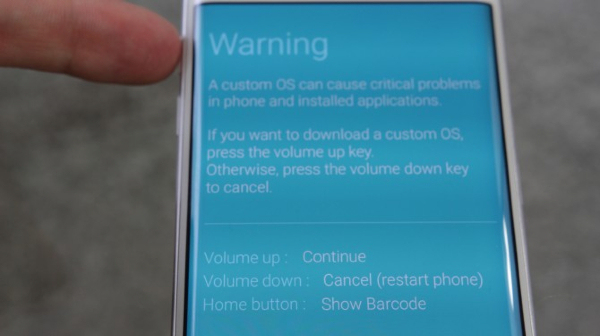Why You Shouldn’t Root Your Android Phone
Rooting your phone makes it easier to customize, but that doesn’t outweigh the numerous risks of doing so.
Rooting your Android phone gives you access to the operating system powering your device, including the parts of the OS that are closed to the outside world. That means you can change settings and how certain features perform in ways that you couldn’t before. You can also take advantage of a number of Android apps that are built specifically for rooted devices, while bragging to all your friends about how there’s no other device out there quite like yours.
And you still shouldn’t do it.

Why? Unless you’re a developer, or you’re using a throwaway phone that’s solely for tinkering, rooting just isn’t worth the hassle. "If you want to do testing in a lab environment then it makes sense to try if you want to investigate there," said Bob O'Donnell, founder and chief analyst of Technalysis Research. "For any typical user using a phone that is their regular device, it just doesn't make sense."
Even though some people may find rooting an Android phone to be worthwhile, you should know that by doing so, you’re opening up your phone to potential issues and problems.
Why people root their phones
For those who feel their phone can’t do enough, rooting it may provide the ultimate sense of liberation. The practice of rooting first gained traction in the early days of Android, especially by those who loved the idea of tinkering with their phones and who wanted to extend the functionality beyond what the manufacturer had allowed.
MORE: Best Unlocked Android Smartphones
Some of the impetus for rooting was driven by the questionable decisions of Android handset manufacturers and cellular carriers. Most manufacturers and carriers were slow (and some still are) to roll out the latest versions of Android to their customers, driving people to take matters into their own hands.
In those days, rooting a device and updating it to the next version of Android was sometimes the only way to implement a Google-driven security fix. But today, many top handset makers push out the latest version of Android to their customers within a month of its release, and Google itself has ways to fix the most serious flaws on Android devices without having to wait for manufacturers and carriers to sign off on the changes.
What are the risks of rooting?
The most prominent risk of rooting is that you void the warranty on your phone. This could be an expensive problem if you’ve recently spent $700 or more on a new device and something goes haywire. People with excellent development skills may be able to restore their phones to their original states if something goes wrong, but it is a risk you’ll have to consider.

Policies on rooting vary widely by manufacturer. Some phones are sold with an unlocked bootloader and may not restrict rooting. (Of course, if you pick up a used device from a site such as eBay or Swappa, you’re on your own anyway.)
Not to mention, there’s this tiny thing known as Android malware. Rooted phones are more susceptible, as your custom ROM is very unlikely to be kept up-to-date with the latest Google security updates, which are released each month. Yes, it’s true that not all manufacturers release these updates to their devices each month. (An exception to all that: well-distributed, frequently updated rooted firmware, such as CyanogenMod, though that project is shutting down and moving on to a new project called LineageOS.)
There’s also the chance you may brick your phone, meaning you’ve made errors with the software that cause the phone to stop working altogether.
Always tinkering in the Android garage
The other issue with rooting comes with the required upkeep. A lot of third-party ROMS may require numerous manual updates to keep the device running properly. You also run the risk that mobile apps will not work with your particular configuration, because, in general, developers are testing their apps with stable builds of Android.
For example, consider this caveat on the app Get Assistant - Root: “Warning: Nexus devices running Nougat only. By downloading, you assume responsibility for all damages that may be caused by the use of this app. Root access required.”
In general, there are far more hazards and problems associated with rooting that will outweigh any perceived benefits from rooting. Rooting a device may be fine for a second phone or a development handset, but rooting your own daily driver is likely to turn out to be an incredible hassle.
"The risk-reward ratio of rooting is not great," O'Donnell said. "All the reward you get is being able to go to other sites where you can theoretically download pirated apps. With those, you risk having malware installed that can cause a problem not only for you but for other people you send content that's been shared or created from your phone."
The forward march of Android
The major reason that rooting is no longer necessary is that Google has done a lot of work to improve Android.
First, Android isn’t ugly anymore. Once Material Design came along with Android 5.0 Lollipop, Google had a dedicated design language that gave the operating system an aesthetic that could finally rival that of iOS. No more external paint jobs were needed.
Android now elegantly does just about anything you’d want it to do.
Another issue is the vastly enhanced Android feature set. Many rooters were trying to add features such as the ability to do precise backups to a preferred cloud service, experiment with rogue applications or try out other tricks.
However, Android now elegantly and smartly does just about anything you’d want it to do. Doze, introduced with Marshmallow, does a good job of reining in battery usage. The Settings menu is now customizable, so you can fire up a phone-based Wi-Fi hotspot (formerly a top rooting goal itself) with just one tap. Multitasking is rapid. Split-screen mode with Nougat is awesome. And if you get a Google Pixel, Android is better than ever, thanks to Google Assistant, which will soon come to other Android phones.
There’s one final reason why rooting isn’t worth it: Computing is moving past the stage of rooting a device. What we do on a smartphone will be increasingly dominated by interactions such as voice commands, or automation thanks to artificial intelligence, with digital assistants providing context-aware info depending on your location or the time of day. Such interactions with voice assistants will be tightly controlled by Google, Amazon, Apple or Microsoft. Rooting may still have a role in accessing certain software on a device, but the real power will be in some company’s cloud.
Sign up to get the BEST of Tom's Guide direct to your inbox.
Get instant access to breaking news, the hottest reviews, great deals and helpful tips.
Derek Walter is a freelance technology writer whose work has appeared on Fast Company, IGN, TechRadar, PCWorld, and more. At Tom's Guide, he specializes in covering Apple and Android phones. He is also the author of Learning MIT App Inventor, a guide for creating Android apps, and is the founder of Walter Media.
-
Damien_14 This is akin to American political fear mongering. Don't root your phone because Isis.Reply
I guess I should watch out for terrorists
